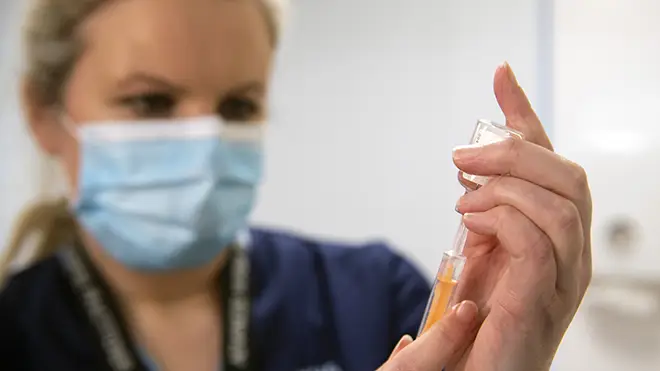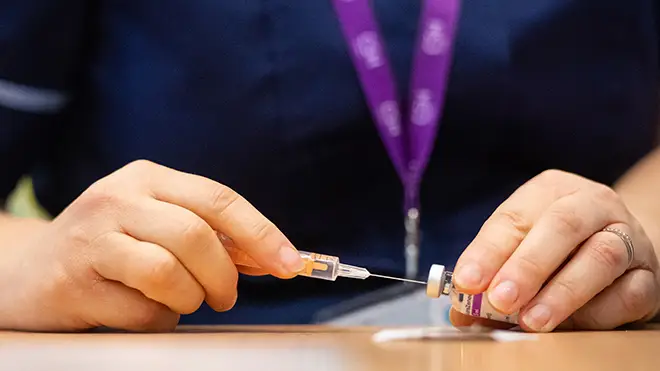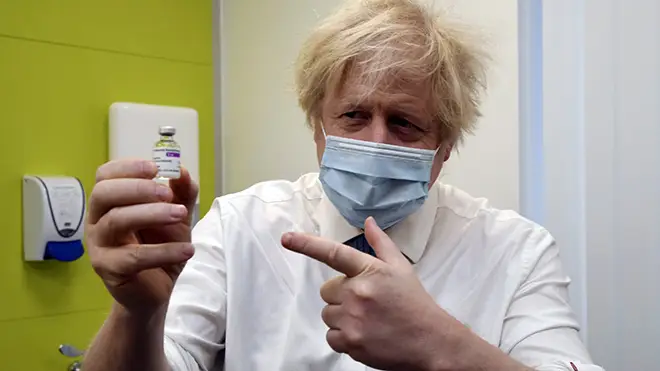
Nick Ferrari 7am - 10am
15 February 2021, 16:00

Are asthma and diabetes patients classed as clinically vulnerable? The UK vaccine rollout enters the next stages and invites those with underlying health conditions for the immunisation.
The coronavirus vaccine rollout in England has officially begun to immunise the next stages of the Covid-19 vaccine priority list including those aged 65 and over and anyone from the age of 16 on the clinically vulnerable list.
As of 15th February, more than 15 million people across the UK have received their first dose of the Covid vaccine as the rollout focused on those who were most vulnerable to catching the virus.
So far, NHS and care workers, those aged 70 and over and anyone who is extremely clinically vulnerable would have been invited for their Oxford of Pfizer jab.
Now, the UK is moving on to vaccinating those aged 65 and over and those aged 16 and over who are clinically vulnerable or with underlying health conditions.
Related article: Will children get the Covid-19 vaccine?
So what is classed as clinically vulnerable in the UK? Does this include patients with asthma and diabetes? And when can they expected to be invited for their Covid vaccine? Here’s the latest information:

Different from those who were classed as ‘clinically extremely vulnerable’, the ‘clinically vulnerable’ includes those who:


Covid Vaccine: Your questions answered
From now, those aged 65 and over or classed as clinically vulnerable should start expecting an invite for the jab.
If you fall in any of the four top priority groups, and are yet to be invited for your Covid vaccine, you are urged to contact the NHS to get booked in.